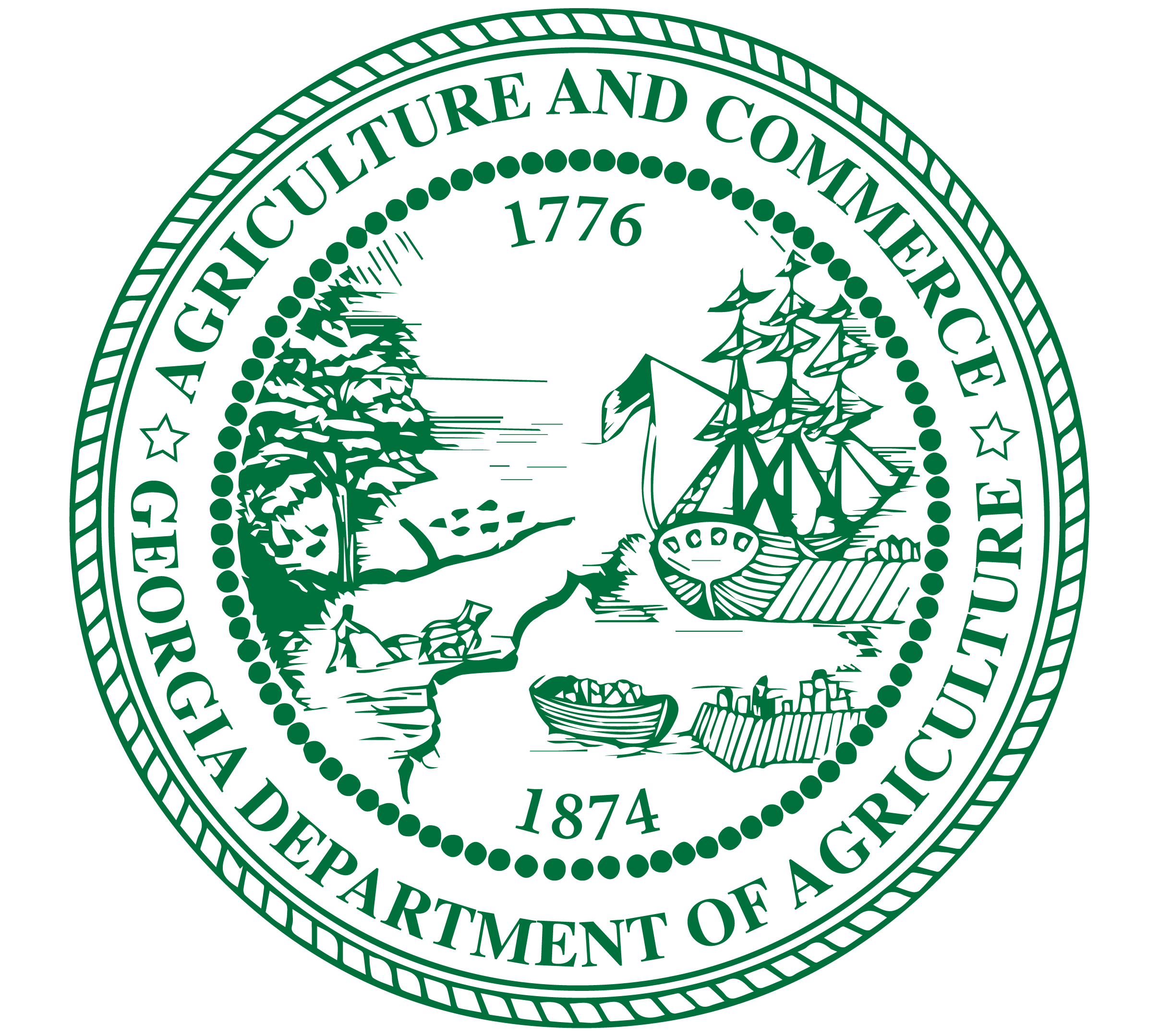This guidance document is intended to provide general information and the basic requirements needed to obtain a license to operate as a custom exempt establishment.
Licensing with the Georgia Meat Inspection Section (GMIS) is required for any facility that offer services of slaughtering and/or processing livestock (including feral swine) for use by the owner of the livestock, members of the livestock owner’s household, nonpaying guests of the livestock owner, or for the livestock owner’s employees. Products produced under this license must be marked “Not For Sale”, and are exempt from full, mandatory meat inspection.
GMIS inspects custom exempt slaughter and/or processing facilities as required by State of Georgia regulations to ensure compliance. No annual license fee or renewal is required for custom exempt licensed facilities.
Humane Handling - Regulations
- Humane Handling applies to all animals on the premises of a GMIS licensed establishment whether those animals are designated for slaughter under inspection or for slaughter under a Custom Exempt program. The Humane Methods of Slaughter Act (HMSA) applies to the slaughter of cattle, calves, sheep, swine, and other livestock.
Humane Handling violations include, but are not limited to:
- Making cuts, sticking, or shackling conscious animals
- Mistreating animals or handling them in a way that will cause harm or death
Records
Your facility records shouldinclude the following information:
-
- Names and addresses of the owners of the livestock and products
- Numbers and kinds of livestock slaughtered
- Quantities and types of products prepared (Recorded dressed weight is acceptable)
- Maintain records that document the ages of slaughtered cattle (less than 30 months or 30 months of age and older), that cattle were ambulatory at the time they were delivered to slaughter, and that SRMs were disposed of properly
- Establishments that use a municipal water supply, must supply GMIS with a water report issued under the authority of the State or local health agency, certifying or attesting to the potability of the water supply.
- Establishments that utilize a private well as their water supply, must provide documentation (i.e., bacteriological water testing results from a certified laboratory) attesting to the potability of the water supply at least twice (every six months) per calendar year.
Basic Minimum Requirements
- Facility Construction
- Grounds and pest control. Establishments must have in place a pest management program to prevent the harborage and breeding of pests on the grounds/official premises and within establishment facilities. Pest control substances used must be safe and effective under the conditions of use and not be applied or stored in a manner that will result in the adulteration of product or the creation of insanitary conditions.
- Establishment buildings, including their structures, rooms, and compartments must be of sound construction, be kept in good repair, and be of sufficient size to allow for processing, handling, and storage of product in a manner that does not result in product adulteration or the creation of insanitary conditions.
- Walls, floors, and ceilings within establishments must be built of durable materials impervious to moisture and be cleaned and sanitized as necessary to prevent adulteration of product or the creation of insanitary conditions.
- Walls, floors, ceilings, doors, windows, and other outside openings must be constructed and maintained to prevent the entrance of vermin, such as flies, rats, and mice.
- Plumbing
- The system must provide sufficient quantities of water to required locations throughout the establishment.
- Properly convey sewage and liquid disposable waste from the establishment.
- Prevent adulteration of product, water supplies, equipment, and utensils and prevent the creation of insanitary conditions throughout the establishment.
- Provide adequate floor drainage in all areas where floors are subject to flooding-type cleaning or where normal operations release or discharge water or other liquid waste on the floor.
- Prevent back-flow conditions in and cross-connection between piping systems that discharge waste water or sewage and piping systems that carry water for product manufacturing
- Prevent the backup of sewer gases.
- Bathroom Facilities
- Dressing rooms, toilet rooms, and urinals must be sufficient in number, ample in size, conveniently located, and maintained in a sanitary condition and in good repair at all times to ensure cleanliness of all persons handling any product. They must be separate from the rooms and compartments in which products are processed, stored, or handled.
- Lavatories with running hot and cold water, soap, and towels, must be placed in or near toilet and urinal rooms and at such other places in the establishment as necessary to ensure cleanliness of all persons handling any product.
- Refuse receptacles must be constructed and maintained in a manner that protects against the creation of insanitary conditions and the adulteration of product.
- Hand Washing
- Hand washing facilities shall be conveniently located and easily accessible for all employees in the processing area. The hand washing sink must provide hot and cold water and be equipped with handsoap and paper towels.
- Hands must be properly washed before beginning operations, between each preparation step, after every break,and as frequently as required to prevent contamination.
- Sanitary Operations
- All food-contact surfaces, including food-contact surfaces of utensils and equipment, must be cleaned and sanitized as frequently as necessary to prevent the creation of insanitary conditions and the adulteration of product.
- Non-food-contact surfaces of facilities, equipment, and utensils used in the operation of the establishment must be cleaned and sanitized as frequently as necessary to prevent the creation of insanitary conditions and the adulteration of product.
- Cleaning compounds, sanitizing agents, processing aids, and other chemicals used by an establishment must be safe and effective under the conditions of use. Such chemicals must be used, handled, and stored in a manner that will not adulterate product or create insanitary conditions. Documentation substantiating the safety of a chemical's use in a food processing environment must be available to GMIS inspection program employees for review.
- Product must be protected from adulteration during processing, handling, storage, loading, and unloading at and during transportation from official establishments.
- Sewage
- Sewage must be disposed into a sewage system separate from all other drainage lines or disposed of through other means sufficient to prevent backup of sewage into areas where product is processed, handled, or stored. When the sewage disposal system is a private system requiring approval by a State or local health authority, the establishment must furnish GMIS with the letter of approval from that authority upon request.
- Lighting
- Adequate lighting (highly recommend shatter proof and/or coverings) must be used throughout the facility.
- Employee Hygiene
- Cleanliness. All persons working in contact with product, food-contact surfaces, and product-packaging materials must adhere to hygienic practices while on duty to prevent adulteration of product and the creation of insanitary conditions. (Highly recommend hair coverings should be worn by all workers engaging in the processing and handling of exposed product).
- Clothing: Aprons, frocks, and other outer clothing worn by persons who handle product must be of material that is disposable or readily cleaned. Clean garments must be worn at the start of each working day and garments must be changed during the day as often as necessary to prevent adulteration of product and the creation of insanitary conditions.
- Disease control: Any person who has or appears to have an infectious disease, open lesion, including boils, sores, or infected wounds, or any other abnormal source of microbial contamination, must be excluded from any operations which could result in product adulteration and the creation of insanitary conditions until the condition is corrected.
- Packaging Materials
- Packaging material must be of food grade material and stored in a sanitary manner.
- Product labeling
- Every meat product package must be marked legibly as “Not for Sale” in letters at least three-eighths inch in height.
- If the custom operator prepares or handles any products for sale (Retail Exemption), they are kept separate and apart from the custom prepared products at all times while the latter are in his custody
- The custom prepared products are plainly marked “Not for Sale” immediately after being prepared and are kept so identified until delivered to the owner
- Cooking and Cooling Products
- Operator should be prepared to demonstrate how they cook and cool product appropriately to ensure that it is not adulterated.
- Custom exempt operator may have a procedure (written/not written) to produce product that is not adulterated or misbranded.
- Cold Storage
- All food must be stored in a manner to prevent contamination and inhibit the growth of microbial organisms. Food under refrigeration should maintain an internal temperature of 40°F or below.
- Waste Management/Inedible Material Control
- The facility must handle and maintain inedible material to prevent the diversion of in-edible animal products (including SRM) into human food channels, resulting in the adulteration of human food. All inedible containers must be legible marked “Inedible”.
- Custom Exempt facilities must provide a waste removal permit/letter. Waste includes offal, bones, and blood.
- Contact the GDA’s Livestock and Poultry Division for disposal guidance at 404-656-3665.
- Rules & Regulations of the State of Georgia 40-13-5 Dead Animal Disposal: https://rules.sos.state.ga.us/gac/40- 13-5
- The State of Georgia Environmental Protection Division (EPD) approves water management and disposal plans.


